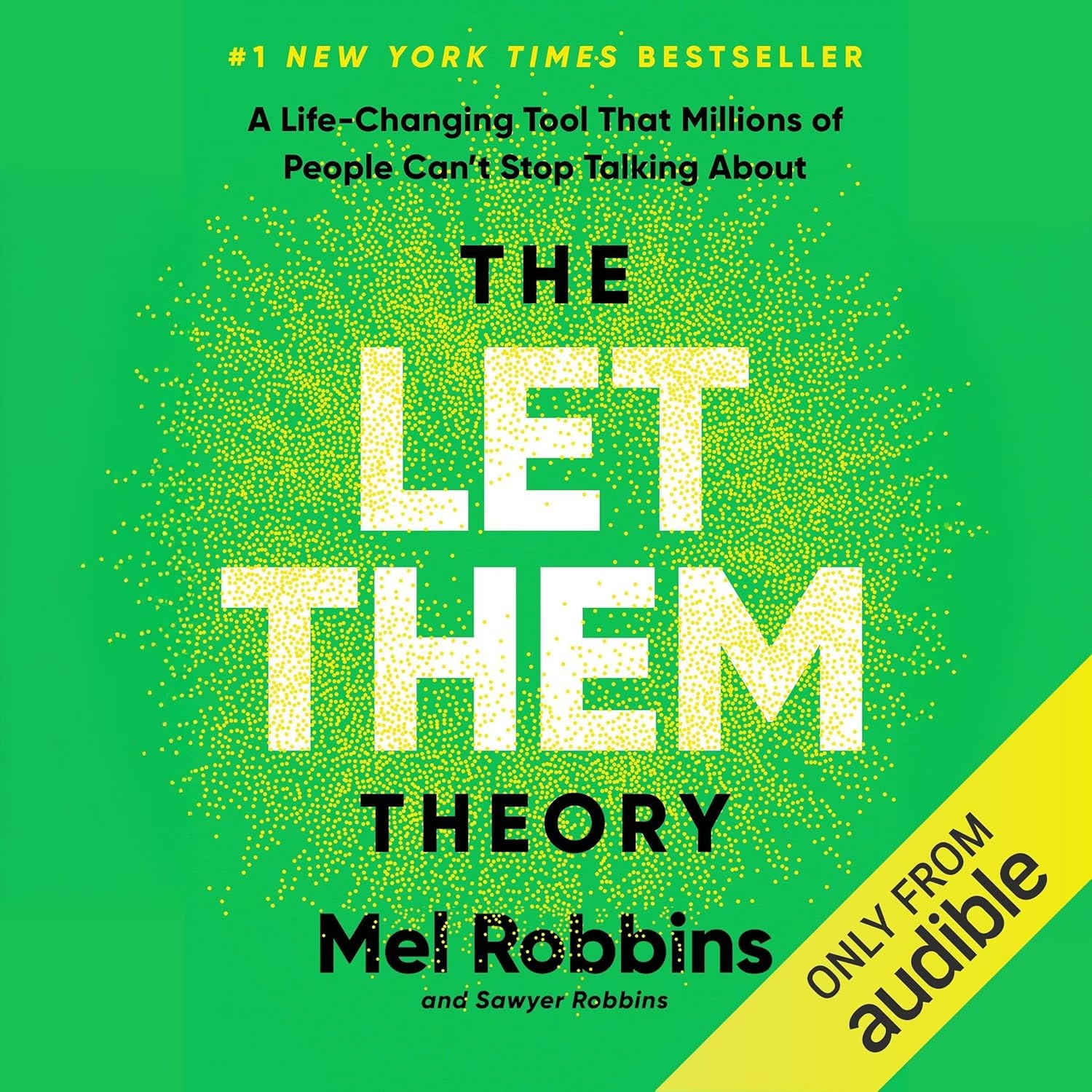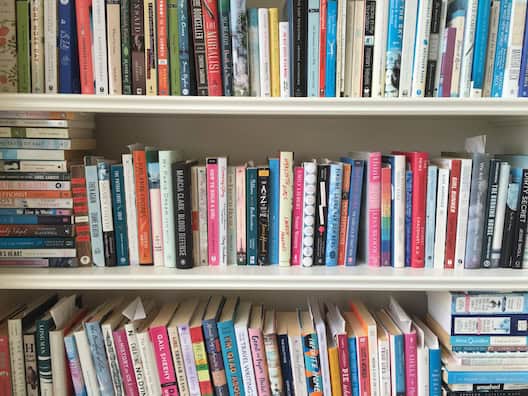As someone who always wishes on 11:11 (yes, both a.m. and p.m.), I was pretty much hooked from the first paragraph of “After You.” It’s those little details that suck us so completely into your novels, and in this one you also focus on one of my favorite books. “The Secret Garden” plays such an important role in “After You.” What kind of role did it play in your own life and why did it resonate so strongly with you?
“The Secret Garden” is hands down my favorite book of all time. I remember as a kid my mother and I cuddling up together and reading it — my old, torn mint-green copy is one of my most prized possessions — and in adulthood I’ve turned to the book on countless occasions for refuge and comfort. (I even had a favorite passage read at my wedding.) “After You” is, in many ways, an homage to “The Secret Garden” — it too is a story of redemption and the restoration of self — and so it was important to me to work it in as an integral and natural part of the story.
What other books have been influences on you – both personally and professionally?
I can honestly say that every book I’ve ever read has in some way or another made me a better writer. Whenever I pick up a new novel, I always try to read critically and consciously, asking myself what works and what doesn’t about the structure, about each sentence, the voice. Every once in a while, when I truly get lost, when I forget myself as a writer and lose myself in the work, that’s when I know I’m reading something magical.
Both “After You” and your first book, “The Opposite of Love,” deal with grief and loss in some way. What makes this subject so appealing to you?
I feel like when writing a first novel, you can’t help but discover what you’re interested in; but with a second one, you find out what you should probably be talking to a therapist about! What’s fascinating to me is not only that both of my novels deal with motherless daughters in particular — which is something I have personal experience with (I lost my mother at the age of fourteen) — but that, at their core, both books are a meditation on the aftermath of loss more generally. “After You” is not only about Sophie’s dealing with the loss of her mother, but also about how Ellie has dealt with the recent loss of a baby. I seem to be a little obsessed with the ways in which we manage to botch up our lives and then (hopefully) self-heal in the wake of grief.
Why did you set this book in London and make Ellie have to cross the ocean rather than the country for her journey? And, hey, how did you end up living there as well?
I sent Ellie (and Lucy first) across the pond for a bunch of reasons. I wanted to write about London, and in particular the expat experience of living here, which ironically was a topic I was interested in before I decided to move myself. The fact that the “The Secret Garden” and gardens in general play such a large role in the book, made England a natural choice. I also liked the idea of Ellie running far, far away from her own life, to a place that would require the crossing of an ocean (not simply the hopping in a car) to get back home. And that also applies to Lucy as well, who we find out about halfway through the book also made an impulsive decision to get married to Greg and move, that London promised her a whole new life, the seduction of a blank slate.
As for me, my reasons for moving were a bit more mundane. My husband was born and raised in London, and after seven years in the States I think he wanted to move back closer to his family. When a great job opportunity in London came up, we jumped at the chance to try it out.
Your characters are so likeable because of their honesty about their own imperfections – they’re self-deprecating, easy to relate to and are the kind of women you really want to be friends with. Are they based on any of your own friends?
Actually, no. I do have wonderful friends, who are all those things you described — funny and warm and relatable — but none of them resemble Ellie or Lucy or even Emily in “The Opposite of Love.” I find when I’m writing that basing characters on people I actually know is too difficult, because it’s frustrating to tie myself to reality. The best part of my job is that I get to make things up and create new and interesting people in the process. The only time I’ve deviated from this is with the character of Inderpal in “After You,” which is loosely based on my husband as a little kid. But we met as adults, so this rendering is fully fictional. In my next novel, I also borrow loosely from my grandmother’s life, but again, the character is her as a young woman, and I only had the pleasure of knowing her in the later stages of her life. So again, I don’t get to loose the pure freedom and pleasure incumbent in writing fiction.
How has your husband reacted to your two books about women dissatisfied – or, at least, not completely satisfied — with the men in their lives? Is he worried?!
That’s so funny! I’ve never asked him. Interestingly, both characters have trouble with the men in their lives, but in both instances the trouble is almost completely self-driven and self-created. I doubt my husband is worried, though. He is one of those frighteningly well-adjusted non-neurotic people, who doesn’t waste time worrying about that sort of stuff. Of course, in that way, we are complete opposites! See, now I’m worried…
For readers who don’t know your background, you graduated the University of Pennsylvania and Harvard Law School, and had a successful career as a lawyer. What made you decide to give up law for writing, and are there skills from your lawyer days that come in handy as a writer? Which career is more difficult?
The discipline and work ethic I learned as a lawyer have translated well into my writing life, since my days are completely self-directed now. But other than that, I haven’t found that much cross-over, since with brief-writing you are tied down to the law, and with fiction writing you get to make stuff up, which is a lot more fun. In some ways, they are both sort of masochistic and difficult careers. Being a lawyer was torture for me, because I found the work tedious and boring. Now that I’ve tasted the writing life, I can’t ever imagine going back. That being said, in some ways it is almost more difficult doing something you love passionately. The stakes always feel high, and my working day never has an end point. I let it bleed into everything I do, and when I’m in the thick of writing a book, I have trouble concentrating on anything else. But believe me I’m not complaining. It is such a blessing to get to wake up each morning and do something I love! It literally feeds my soul.
I’m too math-challenged to figure out the timing but I know you have a baby girl now – congratulations! – and I’m wondering if you wrote “After You” while you were pregnant, and how the two processes affected each other. I would imagine you would have cried through the whole writing process. Can you tell me a little about this connection?
I actually got pregnant a few weeks after handing in the final draft of “After You.” I’m so glad the two things didn’t overlap, because I think writing about loss (and in particular Ellie’s experience with losing a pregnancy) while pregnant would have been too difficult! But when I went back and read “After You” one last time it became clear to me that my own readiness or yearning for a baby definitely leaked into the work.
Are you looking forward to reading “The Secret Garden” with your own daughter? What other books will you make sure to put in her library?
Yes, I can’t wait to read “The Secret Garden” with Elili! (She already has multiple copies on her bookshelf, and I’m thinking of starting a collection for her.) I’ve had a lot of fun stocking her library. I’m actually not that well-versed in children’s books, so it’s been interesting browsing through the bookstores. She already has a bunch of young adult classics, like “Little Women,” and I’ve kept all of my Shel Silverstein from childhood for her as well. Lately, though, it’s been less about literary merit, and more about books that allow me to make silly sounds while I read to her. (She’s six months old.) A friend recently gave us “Bear Snores On,” which I had never read before, and now love. When else do you get to spend a half hour making funny snoring sounds! Bliss!
I understand Anne Hathaway will be starring in the movie version of “The Opposite of Love.” Congratulations! What do you think of that casting? Will you be writing the screenplay? Who would be your top choice to play Ellie in a movie version of “After You?”
I honestly couldn’t think of a better or more appropriate actress to play Emily than Anne Hathaway. Not only am I a big fan, but I think she will perfectly capture Emily’s vulnerability, her humor and her charm. As for Ellie, I get asked this question all the time, and I haven’t yet come up with a perfect answer. Since the powers that be in Hollywood did such a great job casting Emily, maybe I should leave it up to them.
Because they’re so compelling, your books are such fast reads – which means you’re going to have to write faster to keep your fans satisfied! What are you working on now, and when will get to read it?
Thanks so much! I’m currently working on my third novel, which will hopefully reach readers by next year. I’m a little superstitious about talking too much about what I’m working on. I don’t know why but I always feel like I’ll jinx it. The new book, which has the working title of “The Modern Girl’s Handbook,” is primarily set in 1950’s Long Island. I can say this, though: I’ve had a ton of fun researching the time period. When else can you watch old “Father Knows Best” episodes and call it “work?”
This post originally appeared on my former blog, StyleSubstanceSoul.




Thanks so much for introducing us to this author! I’m definitely intrigued and can’t wait to pick up both of her books!
What a wonderfully revealing interview with a great author… I really enjoyed both of Julie’s books … so nice to see (and read) her here!